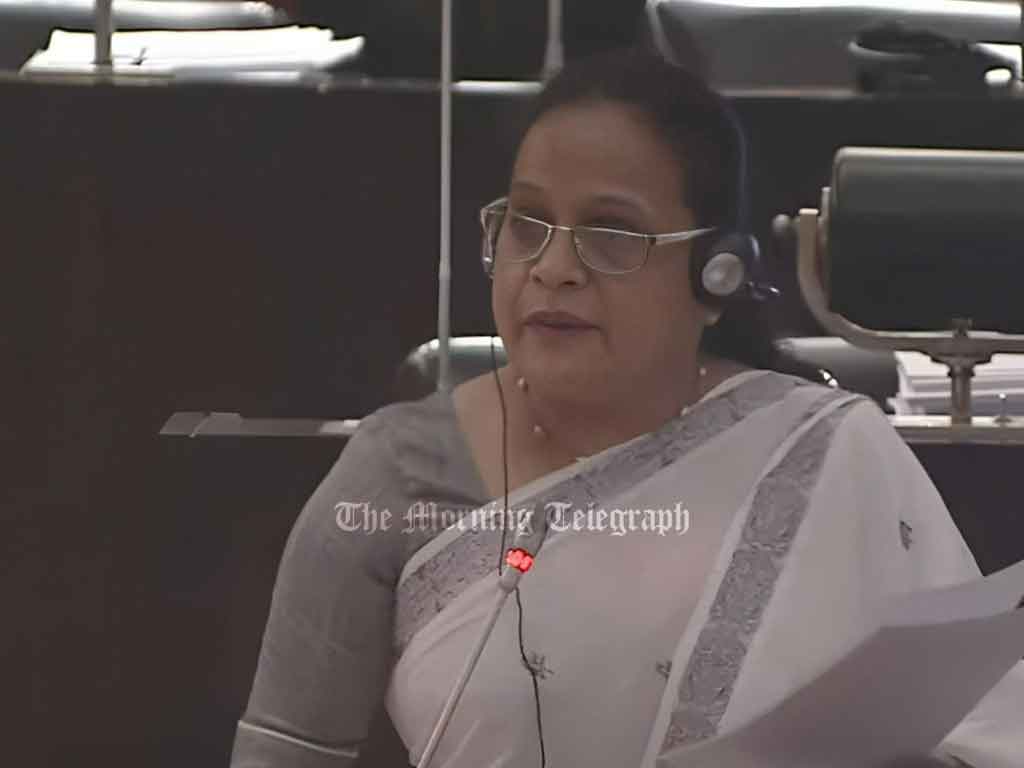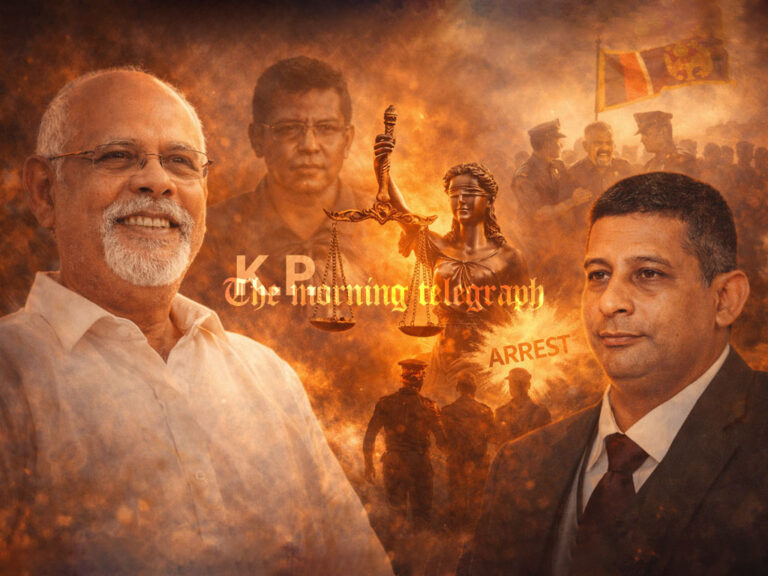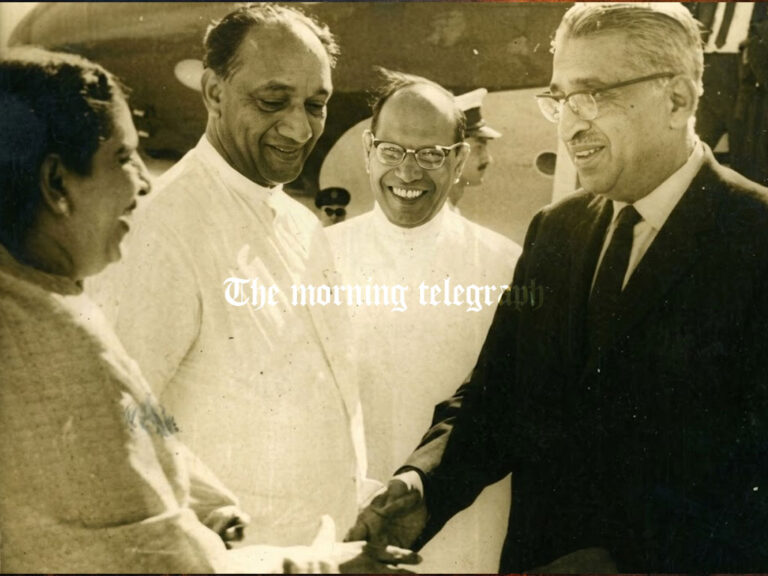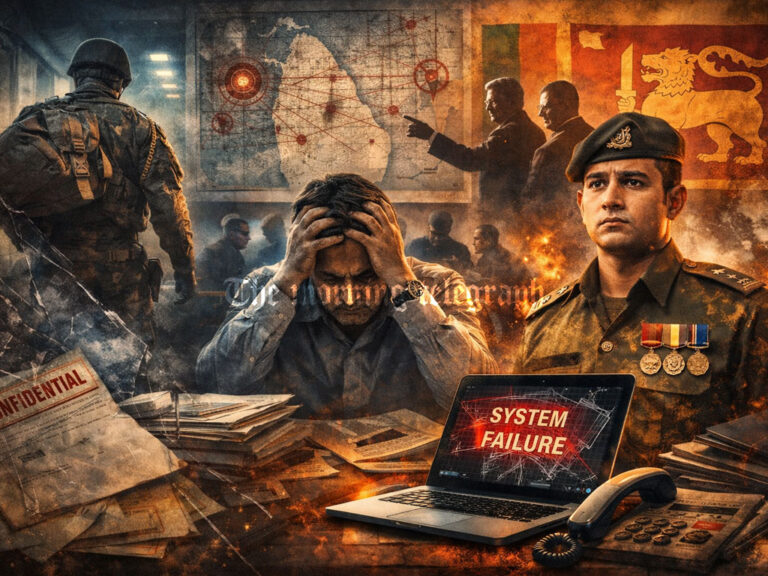
The parliamentary debate on the Batalanda Commission Report heated up today as Samagi Jana Balawegaya MP Rohini Kaviratne delivered a powerful speech, tabled extensive documentation, and recounted chilling memories of the 1988–1989 terror years, accusing the Janatha Vimukthi Peramuna (JVP) of mass killings.
As she stood in Parliament, she began with a solemn tone.
“The 1985 to 1991 terror era was a disaster,” she said. “A disaster that could have been avoided, but wasn’t—because of foolish, arrogant, and power-hungry politics. And let me remind you: the survival of humanity depends on how well we learn from our past.”
Addressing the chamber with emotion, she continued, “To speak in this debate—about a tragedy that should never be repeated anywhere in the world—is not just my right, it’s a fate. I was one of the lucky ones. I survived the horrors of 1989. I am living an extra life.”
Pausing briefly, she quoted Abraham Lincoln: “The possibility of a struggle flourishing should not prevent me from supporting a cause that I believe to be just, just because it is small.”
“I believe it was fate that assigned me this role, to speak of the brutality of the 1987–1989 period,” she said firmly. “This was a tragedy where no one came out victorious. It left a legacy of pain, regret, and unhealed scars. Disabilities, trauma. This tragedy did not belong to a single side—it belonged to the whole country.”
She raised her voice slightly. “What has been the response from our nation’s leadership since then? Nothing. Every President and Prime Minister from 1992 to 2024 has conveniently moved on. No bitterness. No closure. They all wanted to forget.”
With an accusatory glance around the chamber, she said, “Back in 1991, President R. Premadasa at least had the foresight to establish the Youth Discontent Commission to understand the roots of the second insurrection and prevent another catastrophe. After that, President D. B. Wijetunga didn’t obstruct the JVP. That’s how, in 1994, Janith Wipulaguna from the JVP-aligned National Salvation Front was able to enter Parliament from Hambantota.”
She didn’t stop there. “And let us not forget that President Chandrika Kumaratunga governed with the JVP in 1994. Lionel Ranasinghe, who murdered her husband Vijaya Kumaratunga, was part of the caretaker government. That’s how far we’ve come in forgetting.”
“In 2004, the JVP helped topple the UNP government. Chandrika allowed it. In 2005, Mahinda Rajapaksa welcomed the JVP into his government, despite them once calling him a traitor. In 2010, both the JVP and UNP stood on the same stage for Sarath Fonseka. In 2015, the JVP stood with the UNP to bring Maithripala Sirisena into power. In 2018, during the 52-day crisis, I remember vividly how JVP MP Vijitha Herath was running to the Speaker’s side to protect Ranil Wickremesinghe’s government. He ran more than we did!”
She laughed once, bitterly. “And in 2024? It was former President Ranil Wickremesinghe who helped, indirectly, to bring Anura Kumara Dissanayake into power.”
“I say this today: every ruler from 1990 to 2024 forgot what happened between 1985 and 1991.”
Rohini then recalled a recent exchange. “Just a week after Minister Gamagedara Dissanayake and I clashed over the horrors of that era, former President Ranil Wickremesinghe sat down with Al Jazeera and made comments about it. And what happened? This government fell right into the trap. Into the pit.”
She surveyed the chamber. “Now there’s a generation that knows nothing about 1987 to 1991. And yet, they speak of it as if they lived through it.”
She held up a document. “One line says, ‘The threat posed by the saboteurs was effectively suppressed by the suppression units in each area.’ What does that mean? That without detention centers and police-military action, the violence would have continued?”
She slammed a stack of documents on the table. “Here. I am tabling a list of UNP members among the 6,661 victims of JVP killings. You speak of 67,652, but official government figures say 41,813 died during the JVP insurgency.”
“I am bringing forward these names—hidden for 35 years. I’m doing this on behalf of the democratic political parties that were slaughtered during the Bhishana Samaya. They don’t even have representation in this House.”
Raising her voice, she said, “This isn’t just my duty. It’s a responsibility passed to me by the families and party leaders who asked me to speak for their murdered relatives.”
She began reading: “24 from the New Sama Samaj Party. 43 from the Sri Lanka Communist Party. 22 from the Sama Samaj Party. Three more non-member associates. 141 from the Mahajana Party. 24 from the Janata Samaj and the Samajavadi Equality Party. A list of Buddhist monks. Not just names, but seven investigative reports. Bombings. Attacks. Blood.”
She looked up. “What did they do to deserve such deaths? They worked with India. They supported provincial councils. They believed in power-sharing. They were political leftists. They dared to stand for democratic rights.”
Rohini continued, “The three who pushed the 67,000 figure are no longer even in politics. Meanwhile, during Modi’s recent visit, he honored 29 Indian peacekeepers killed by the JVP. Indian media covered it. Ours did not. But let me remind you, 1,165 Indian peacekeepers were killed. Another 3,009 were injured. That too, is part of this brutal history.”
She leaned on the table. “Back on May 30, 2014, Anura Kumara Dissanayake told BBC Sandesh, ‘I apologize for the killings.’ On November 22, 2017, in this very House, he called 1987 to 1989 a ‘civil war.’ He quoted Mao Zedong—‘war is not a dinner party.’ He said things happen in war that shouldn’t. That his party was responsible. That he was sorry.”
She held up more papers. “I’m tabling those statements. Annexure 8. Annexure 9. Even in the Daily Mirror and Lankadeepa on August 9, 2024, Anura Kumara said, ‘Shock and sorrow have already been expressed.’ Fine. These are good statements. Honest ones.”
“But here’s the truth. The state has the legal right to suppress a civil war. The JVP had five chances to stop it. Five.”
She leaned closer. “Let me walk you through them.”
“In March 1988, President J.R. Jayewardene sent Malinga Herman Gunaratne to invite the JVP to talks. At that point, fewer than 100 people had died. Herman Gunaratne even released Shantha Bandara and sent him home. I’m tabling the letters between them. The relevant pages from A Country Standing on Thorns.”
She shook her head. “What happened next? Killings doubled. Tripled.”
“Even Ravi Jayewardene wrote to Shantha Bandara: ‘We released you to talk peace. Instead, the violence escalated. Now I’m being blamed for inciting more bloodshed.’”
She paused again. “The second missed chance? Support Mrs. Sirimavo Bandaranaike. If they had, the JVP could have helped defeat the UNP. But instead, they turned on the SLFP. 150 to 200 SLFP members were killed.”
“The third? Premadasa’s invitation, January 2, 1989. He lifted emergency laws. Released 1,800 prisoners. He offered safety. He wrote to Wijeweera. Wijeweera refused.”
“The Mahanayakes themselves pleaded for peace. What did the JVP do? On February 8, 1989, they attempted to bomb the Temple of the Tooth.”
She continued, “Fourth missed chance—April 10, 1989. Giradurukotte. Premadasa offered six National List seats. A ministerial portfolio. No response.”
“The fifth? Mediation through Rukman Senanayake and Dr. Gamini Wijesekera. Seventeen JVP suspects released. Still no agreement. Still more death.”
She threw up her hands. “Both sides failed. That’s why 1987 to 1990 became a just civil war. A bloodbath.”
“You remember the 1989 New Year?” she asked. “We didn’t serve kokis. We served heads and body parts on platters. Reuters reported 1,000 deaths a day in July and August 1989. That didn’t even happen during the war with the LTTE.”
She closed her book. “Mao Zedong was right. War is not a dinner party. People weren’t just shot—they were butchered. Mutilated. Buried in pieces. Some with no funerals. No tears. Not even a poem or a song to mourn them.”
She pointed at the young MPs. “And you—Z generation—you don’t know. There was a time in this country when even eating lentils was forbidden.”
She pointed to the past. “Go home. Ask your grandparents. Ask them about the sacks of lentils set on fire in Pallegama. Ask about the men who were killed for selling Eveready batteries.”
Her voice trembled. “That was our reality. That was our terror. And that, above all, must never happen again.”




